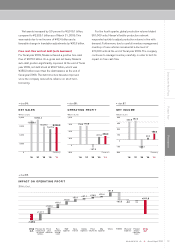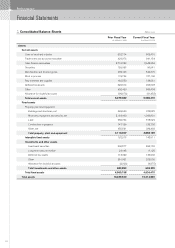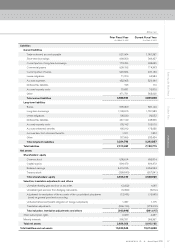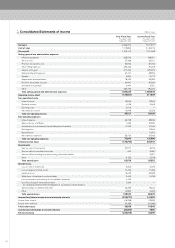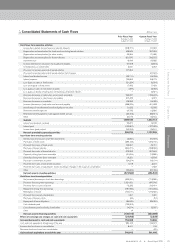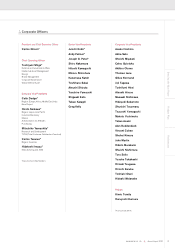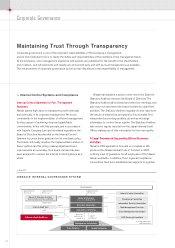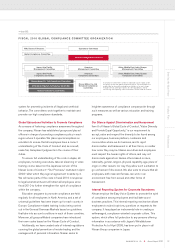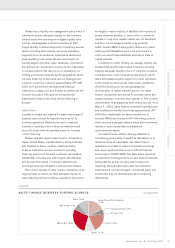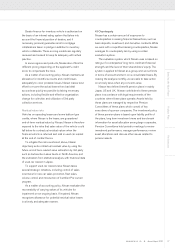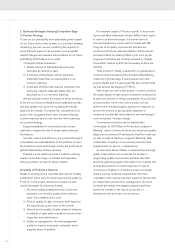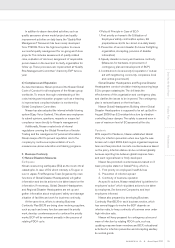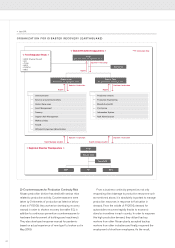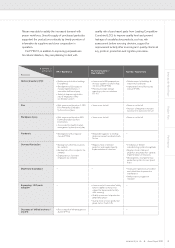Nissan 2010 Annual Report Download - page 34
Download and view the complete annual report
Please find page 34 of the 2010 Nissan annual report below. You can navigate through the pages in the report by either clicking on the pages listed below, or by using the keyword search tool below to find specific information within the annual report.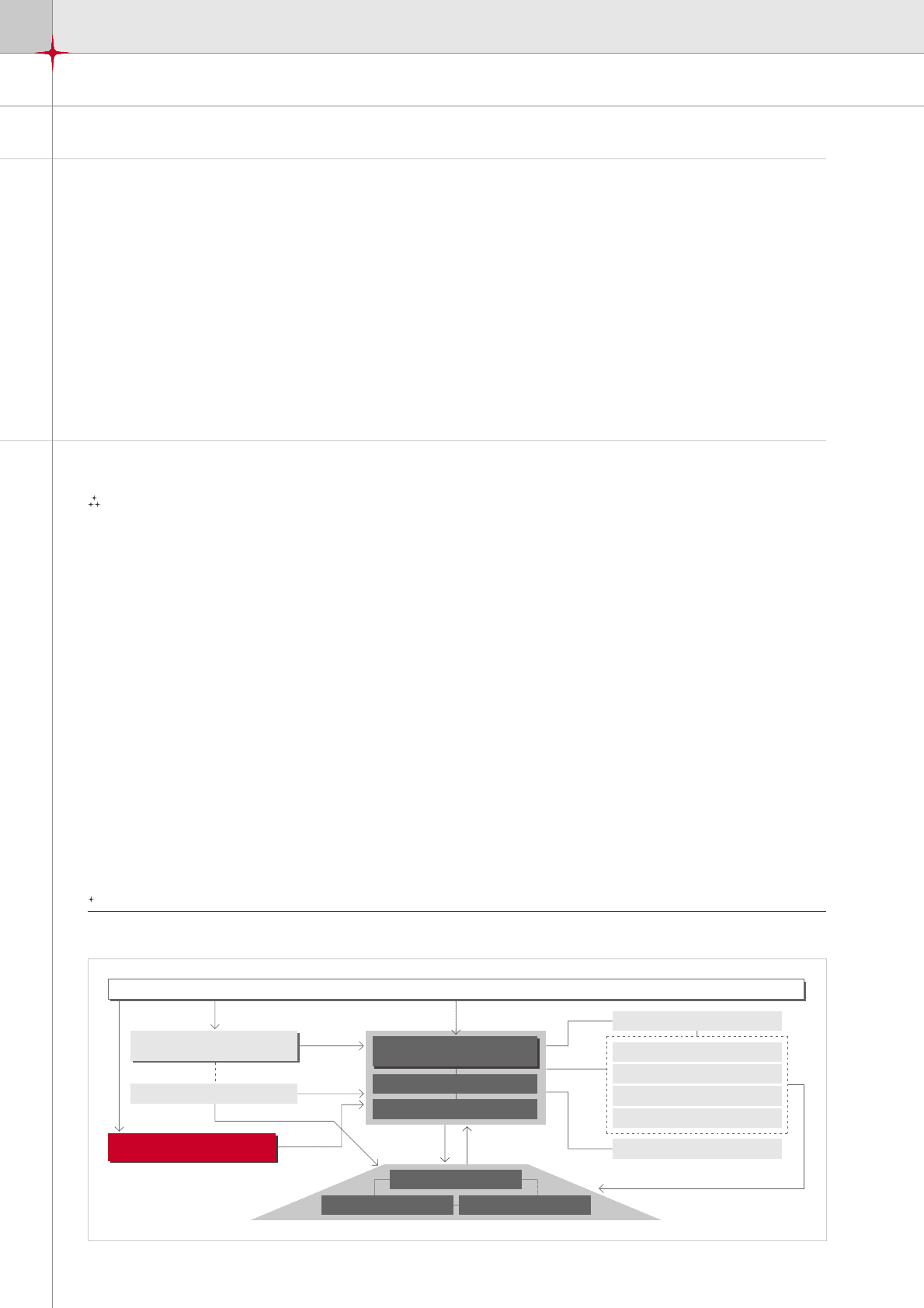
Cor orate Governance
p
32
Corporate governance is one of the important responsibilities of the Company’s management,
and its most important role is to clarify the duties and responsibilities of the members of the management team.
At the Company, clear management objectives and policies are published for the benefit of the shareholders
and investors, and achievements and results are announced early and with as much transparency as possible.
The enhancement of corporate governance by full and fair disclosure is the responsibility of management.
Maintaining Trust Through Transparency
Internal Control Systems and Compliance
Internal Control Systems for Fair, Transparent
Business
Nissan places high value on transparency, both internally
and externally, in its corporate management. We focus
consistently on the implementation of efficient management
for the purpose of achieving clear and quantifiable
commitments. In line with this principle, and in accordance
with Japan’s Company Law and its related regulations, the
Board of Directors has decided on the Internal Control
Systems to pursue these goals and on its own basic policy.
The board continually monitors the implementation status of
these systems and the policy, making adjustments and
improvements as necessary. One board member has also
been assigned to oversee the Internal Control Systems as a
whole.
Nissan has adopted a system under which the Board of
Statutory Auditors oversees the Board of Directors. The
Statutory Auditors attend board and other key meetings, and
also carry out interviews with board members to audit their
activities. The Statutory Auditors regularly receive reports on
the results of inspections and plans for future audits from
independent accounting auditors, as well as exchange
information to confirm these reports. The Statutory Auditors
also receive regular reports from the Japan Internal Audit
Office, making use of this information for their own audits.
A Legal Framework Supporting Ethical Business
Activities
Nissan’s CSR approach is founded on compliance. We
produced the Nissan Global Code of Conduct in 2001,
outlining a set of guidelines for all employees of the Nissan
Group worldwide. In addition, three regional Compliance
Committees have been established as supports to a global
NISSAN’S INTERNAL GOVERNANCE SYSTEM
Chart
01
:
Executive Committee
Operations Committee
CSR Steering Committee
Shareholders
Board of Statutory Auditors
(incl. outside statutory auditors)
Internal Audit Unit
Independent Auditors
appointment/
dismissal
appointment/
dismissal
audit
report
report report/
proposal
direction/
supervision/
approval
training/education/
implementation
cooperation
audit
appointment/
dismissal
Management Committees
Each Function Group Companies
Internal Control Committee
Compliance Committee
Crisis Management Committee
Risk Management Function
Information Security Committee
Board of Directors
(incl. outside director)



